Introduction to Stainless Steel Wire Mesh and Industry Trends
The industrial landscape's relentless demand for materials offering superior performance, longevity, and hygiene has cemented the position of Stainless Steel Wire Mesh as an indispensable component across a multitude of critical applications. Renowned for its exceptional corrosion resistance, high tensile strength, and aesthetic versatility, this material is fundamental in sectors ranging from advanced filtration and separation to architectural design and security. As global industries continue to innovate, the demand for sophisticated, high-performance materials like stainless steel mesh is consistently rising, driven by stricter environmental regulations, increased focus on operational efficiency, and the need for durable solutions in harsh environments.
Current industry trends indicate a significant shift towards specialized alloys and custom mesh configurations to meet highly specific application requirements. There's a growing emphasis on finer mesh counts for micro-filtration in pharmaceutical and food processing, greater open area percentages for enhanced flow rates in fluid dynamics, and advanced weaving patterns for increased stability and load-bearing capacity in structural applications. Furthermore, sustainability and lifecycle considerations are pushing manufacturers to optimize production processes for reduced waste and energy consumption, while extending product service life. The market is also seeing increased integration of smart manufacturing technologies, allowing for unparalleled precision and customization in mesh production.
Manufacturing Process Flow
The production of high-quality Stainless Steel Wire Mesh is a meticulous process that demands precision engineering and strict adherence to quality control standards. Our manufacturing process ensures that each mesh product meets rigorous performance criteria and structural integrity.
Key Materials and Alloys
The foundation of superior wire mesh lies in the selection of premium stainless steel alloys. Common grades include:
- AISI 304 (UNS S30400): The most common austenitic stainless steel, offering excellent corrosion resistance to many chemical corrodes and industrial atmospheres. Ideal for general purpose applications.
- AISI 316 (UNS S31600): Contains molybdenum, providing superior corrosion resistance, particularly against chlorides and other halogen compounds. Essential for marine, chemical, and petrochemical industries.
- AISI 316L (UNS S31603): A low-carbon version of 316, reducing carbide precipitation during welding, making it suitable for heavy gauge welded components.
- AISI 310S (UNS S31008): High chromium and nickel content provides excellent resistance to oxidation and creep rupture strength at high temperatures.
- Duplex Stainless Steels (e.g., UNS S31803): Combining properties of austenitic and ferritic steels, offering higher strength and superior resistance to stress corrosion cracking.
Detailed Manufacturing Steps
-
Wire Drawing: High-quality stainless steel rods are drawn through a series of dies to achieve the precise wire diameter required for the mesh. This process enhances tensile strength and surface finish.
-
Annealing (Optional): For specific applications requiring increased ductility or stress relief, the drawn wires undergo an annealing process, heating them to a specific temperature and then slowly cooling them.
-
Weaving/Welding: The core of mesh production.
- Woven Mesh: Wires are interlaced on specialized weaving looms to create various patterns like plain weave, twill weave, or Dutch weave. This method offers flexibility in mesh openings and strength.
- Welded Mesh: Individual wires are resistance-welded at each intersection, forming rigid and strong panels. This is common for structural or security applications.
-
Cutting and Forming: The woven or welded mesh rolls or panels are cut to specified dimensions and, if required, undergo forming processes such as crimping, bending, or calendering to achieve desired shapes or flatness.
-
Surface Treatment (Optional): Post-production treatments like passivation (to enhance corrosion resistance by restoring the passive layer), electropolishing (for improved surface finish and hygiene), or coating can be applied based on application requirements.
-
Quality Control & Testing: Throughout the process, stringent quality checks are performed, including visual inspection, mesh count verification, wire diameter measurement, opening size analysis, and material composition analysis. Final products are tested against international standards.
-
Packaging: Finished mesh products are carefully packaged to prevent damage during transit, ensuring they arrive in pristine condition.
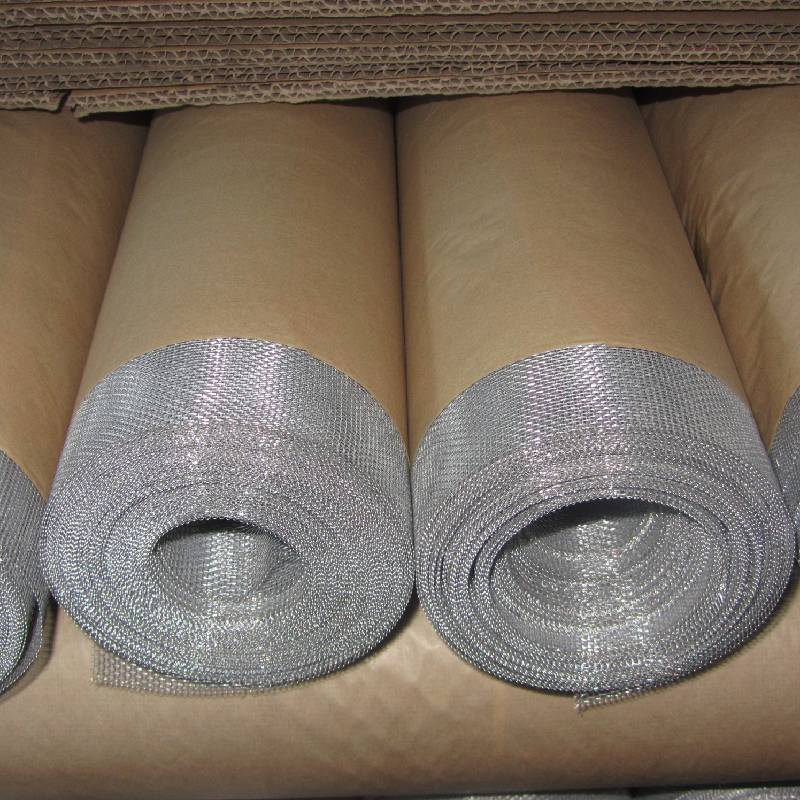
Testing Standards and Certifications
Our products adhere to internationally recognized standards to guarantee quality and performance. These include:
- ISO 9001: For quality management systems, ensuring consistent product quality.
- ASTM E2016: Standard Guide for Industrial Woven Wire Cloth.
- ANSI/AWWA C210: For stainless steel coatings and linings, relevant for water treatment applications.
- FDA Compliance: For mesh used in food processing and pharmaceutical applications, ensuring material safety and hygiene.
Service Life and Target Industries
The typical service life of properly selected and maintained Stainless Steel Wire Mesh can range from 10 to 30+ years, depending on the specific alloy, environment, and application stress. Its remarkable durability makes it a preferred choice for industries such as:
- Petrochemical: Filtration, catalyst support, and separation in highly corrosive chemical environments.
- Metallurgy: Sifting and screening of ores, protective barriers in high-temperature processes.
- Water Supply & Drainage: Filtration of particulates, well screens, and wastewater treatment.
- Food Processing: Conveyor belts, drying trays, sieving, and pest control due to hygienic properties.
- Pharmaceutical: Sterilization baskets, filtration, and drying, demanding stringent cleanliness.
- Architecture & Construction: Decorative panels, safety barriers, and facade cladding.
- Automotive: Air filters, exhaust system components, and battery electrodes.
Technical Specifications and Data Visualization
Understanding the precise technical parameters of Stainless Steel Wire Mesh is crucial for optimal application performance. These specifications define the mesh's physical properties, filtration capabilities, and mechanical strength.
Typical Product Specification Table (Plain Weave - AISI 304)
The following table illustrates typical specifications for various plain weave stainless steel meshes, commonly used for general filtration and screening.
| Mesh Count (per inch) |
Wire Diameter (mm) |
Aperture (mm) |
Open Area (%) |
Weight (kg/m²) |
| 4 |
0.80 |
5.55 |
75.0 |
1.25 |
| 10 |
0.45 |
2.09 |
70.1 |
1.43 |
| 20 |
0.25 |
1.02 |
65.6 |
0.98 |
| 40 |
0.18 |
0.45 |
53.2 |
0.81 |
| 80 |
0.10 |
0.21 |
44.2 |
0.72 |
| 150 |
0.06 |
0.11 |
37.4 |
0.65 |
Note: Aperture refers to the clear opening between adjacent wires. Open area is the percentage of the total area that is open space, directly impacting flow rate and filtration efficiency.
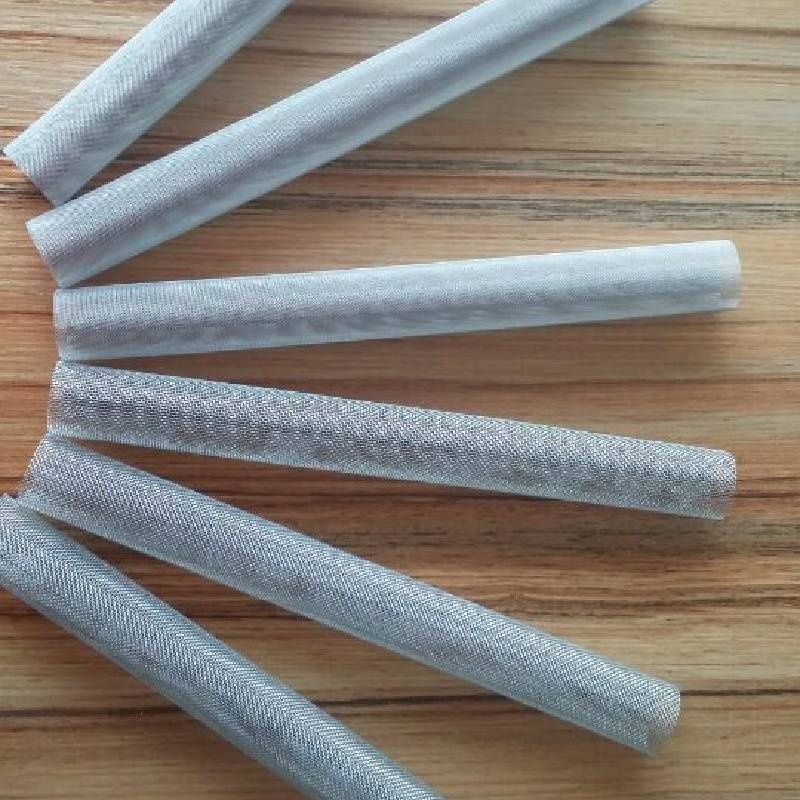
Comparative Performance: AISI 304 vs. AISI 316
Selecting the appropriate stainless steel grade is critical for optimal performance, particularly in challenging environments. The following table highlights key differences between AISI 304 and AISI 316.
| Characteristic |
AISI 304 Stainless Steel |
AISI 316 Stainless Steel |
| Corrosion Resistance |
Good; suitable for most industrial, domestic, and architectural applications. |
Excellent; superior resistance to chlorides and aggressive chemicals (e.g., seawater, sulfuric acid). |
| Molybdenum Content |
0% |
2-3% (imparts enhanced pitting and crevice corrosion resistance). |
| Heat Resistance |
Good oxidation resistance up to 870°C (1598°F). |
Better than 304; excellent in high-temperature cyclic conditions. |
| Cost |
Relatively lower. |
Relatively higher due to molybdenum content. |
| Applications |
Kitchen equipment, architecture, automotive trim, chemical container111s. |
Marine environments, pharmaceutical, petrochemical, pulp and paper. |
Application Scenarios and Technical Advantages
The versatility of Stainless Steel Wire Mesh allows it to address complex challenges across diverse industrial environments, delivering significant technical advantages.
Key Application Scenarios
-
Filtration and Separation: In the petrochemical industry, fine mesh filters are critical for separating solid particulates from liquid or gas streams, protecting sensitive equipment like pumps and valves. In water treatment, mesh screens remove debris from raw water intake, ensuring clean water supply. The corrosion resistance of stainless steel ensures long-term efficiency and reduced maintenance in these aggressive fluid environments.
-
Sizing and Screening: In mining and metallurgy, robust wire mesh is used in vibrating screens to classify aggregates, ores, and other bulk materials by particle size. Its high strength and abrasion resistance minimize wear and tear, leading to consistent product quality and extended operational uptime.
-
Support and Reinforcement: Welded wire mesh provides structural support in concrete reinforcement for construction, animal enclosures, or machine guards. Its inherent strength-to-weight ratio allows for effective load distribution and enhanced safety without adding excessive mass.
-
Heat Treatment Furnaces: High-temperature resistant alloys like 310S are woven into baskets and trays for heat treating applications, where parts are exposed to extreme temperatures. The mesh's ability to withstand thermal cycling and oxidation is paramount for process integrity.
-
Food and Pharmaceutical Processing: With its inert nature and ease of cleaning, stainless steel mesh is ideal for conveyor belts, drying racks, and sifting screens. It ensures product purity, prevents contamination, and complies with stringent hygiene regulations like FDA standards.
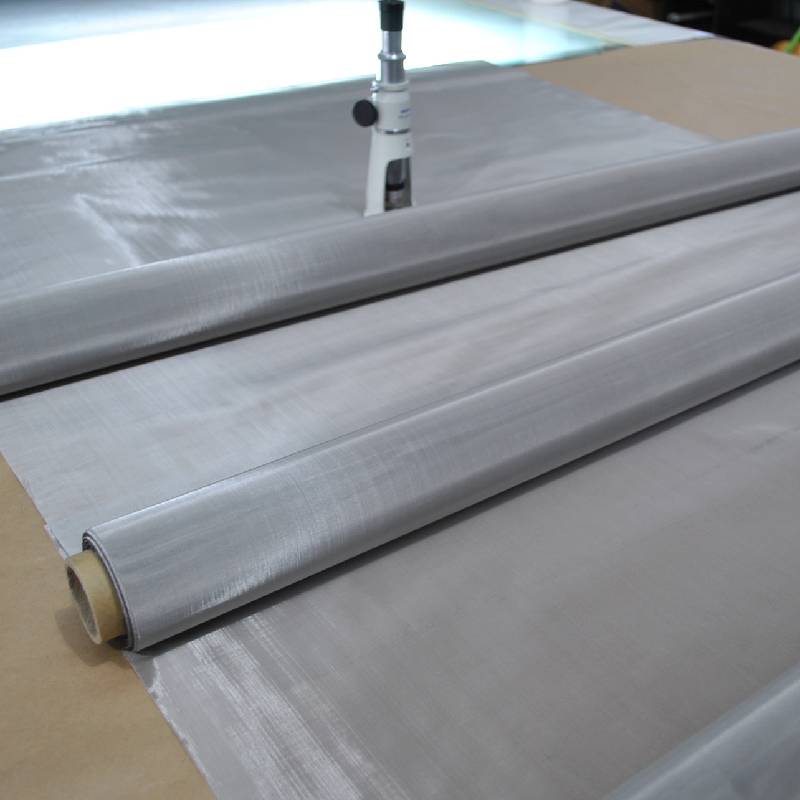
Technical Advantages
-
Exceptional Corrosion Resistance: Stainless steel forms a passive chromium oxide layer that protects against rust and a wide array of corrosive agents, including acids, alkalis, and chlorides. This extends service life and reduces the need for frequent replacement, leading to significant cost savings.
-
High Temperature Stability: Specific grades of stainless steel retain their mechanical properties and structural integrity at elevated temperatures, making them suitable for high-heat industrial processes without warping or degradation.
-
Superior Strength and Durability: With high tensile strength and resistance to abrasion, impact, and fatigue, stainless steel mesh offers robust performance, even under demanding mechanical stress. This contributes to enhanced operational safety and reliability.
-
Hygienic and Easy to Clean: Its non-porous surface inhibits bacterial growth and allows for thorough cleaning and sterilization, crucial for sanitary applications in food, beverage, and pharmaceutical industries. This contributes to public health and product quality.
-
Aesthetic Appeal: The bright, clean finish of stainless steel offers a modern and professional appearance, making it a preferred material for architectural and decorative applications.
-
Energy Saving Benefits: In filtration applications, the precise and stable apertures of stainless steel mesh can lead to more efficient separation, reducing energy consumption associated with re-processing or system overwork. Its longevity also reduces the energy footprint associated with frequent manufacturing of replacement parts.
Vendor Comparison and Customized Solutions
Choosing the right supplier for Stainless Steel Wire Mesh is as critical as selecting the right material. A comprehensive evaluation of vendor capabilities, alongside the flexibility to provide customized solutions, ensures project success.
Key Vendor Comparison Criteria
When selecting a supplier, B2B decision-makers should consider the following factors to ensure a reliable partnership and high-quality products:
- Manufacturing Expertise and Equipment: A vendor with state-of-the-art weaving looms, welding machines, and processing equipment ensures precision and consistency in mesh production. Years of experience in specialized mesh manufacturing also reflect deep industry knowledge.
- Quality Certifications: Adherence to international standards like ISO 9001, ASTM, and specific industry certifications (e.g., for food contact or pharmaceutical use) demonstrates a commitment to quality and regulatory compliance.
- Material Sourcing and Traceability: Reliable suppliers use high-grade, verifiable raw materials, with full traceability from origin to finished product, which is crucial for critical applications.
- Customization Capabilities: The ability to produce mesh with specific alloys, wire diameters, mesh counts, weaving patterns, dimensions, and post-processing treatments (e.g., calendering, passivation, electropolishing) is vital for tailored solutions.
- Technical Support and Engineering Assistance: A vendor that provides expert technical guidance, design assistance, and application engineering support adds significant value, helping clients optimize their selections and designs.
- Delivery Reliability and Lead Times: Consistent on-time delivery and transparent lead time management are essential for managing project timelines and operational continuity.
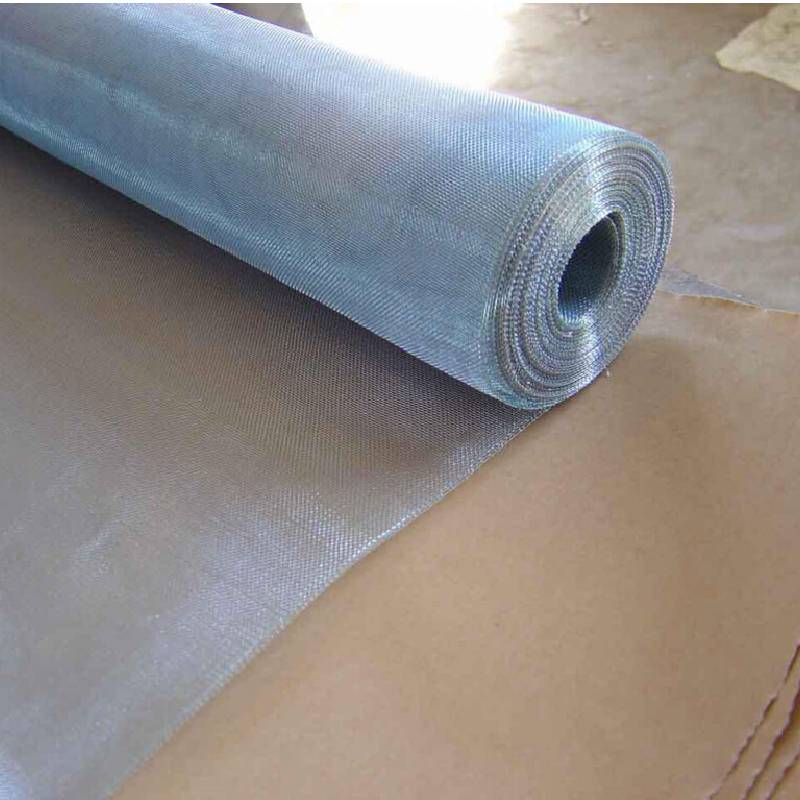
Tailored Customized Solutions
Off-the-shelf mesh solutions may not always meet the exacting demands of specialized industrial applications. We specialize in providing customized Stainless Steel Wire Mesh solutions, meticulously engineered to client specifications.
-
Material Grade Selection: Beyond standard 304 and 316, we offer mesh in specialized alloys like 310S for high-temperature resistance, Duplex for enhanced strength and corrosion resistance, or other exotic alloys upon request, ensuring optimal chemical compatibility and thermal stability.
-
Precision Mesh Specifications: Custom wire diameters (from microns to millimeters), mesh counts, and aperture sizes are available to meet precise filtration, screening, or flow control requirements. This includes intricate Dutch weave patterns for superior particle retention and strength.
-
Form and Fabrication: We provide mesh in various forms, including rolls, cut-to-size sheets, discs, cylinders, or complex fabricated components. Secondary operations such as calendering (flattening for increased surface area or smooth flow), crimping, welding, and framing are also offered.
-
Surface Finishes: Options include mill finish, passivation (standard for enhancing corrosion resistance), electropolishing (for ultra-smooth, cleanable, and aesthetically superior surfaces, critical for pharmaceutical and food-grade applications), and various coatings.
-
Prototyping and Scaling: From initial concept and prototyping to full-scale production, our engineering team works closely with clients to develop and refine custom mesh solutions, ensuring seamless integration into their systems.
Application Case Studies
Our expertise in Stainless Steel Wire Mesh has been demonstrated in numerous successful projects across diverse industries, providing tangible benefits to our clients.
Case Study 1: Enhanced Filtration in a Chemical Processing Plant
Challenge: A major petrochemical client was experiencing frequent blockages and premature wear in their catalyst beds due to insufficient filtration of raw feedstock, leading to costly downtime and reduced production efficiency. Their existing mesh filters were failing under aggressive chemical exposure.
Solution: We engineered a custom-designed Dutch weave Stainless Steel Wire Mesh filter, fabricated from AISI 316L, optimized for enhanced strength and superior fine particle retention. The mesh was passivated to maximize its resistance to the specific corrosive chemicals present.
Result: The new filters dramatically reduced particulate carry-over, extending the lifespan of the catalyst beds by over 40% and cutting downtime for filter replacement by 60%. This resulted in an estimated annual saving of over $250,000 in maintenance and increased productivity.
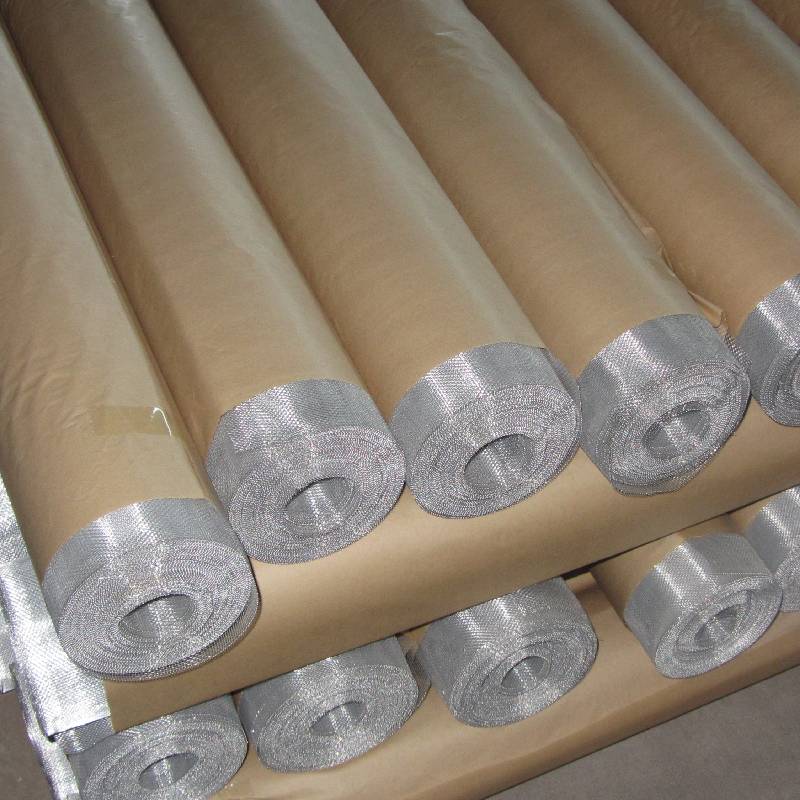
Case Study 2: Hygienic Conveyor System for Food Production
Challenge: A large-scale bakery required a durable, hygienic, and easy-to-clean conveyor belt for transporting hot bread products through a cooling tunnel. Previous belts made from other materials exhibited issues with heat deformation, bacterial accumulation, and difficulty in sanitation.
Solution: We provided a custom-fabricated woven conveyor belt using food-grade AISI 304 Stainless Steel Wire Mesh with specific open area for efficient airflow, and an electropolished finish for an ultra-smooth, non-stick, and easily sterilizable surface.
Result: The new stainless steel mesh conveyor eliminated bacterial concerns, reduced cleaning time by 30%, and maintained its structural integrity under continuous high-temperature cycles. The bakery achieved higher product quality standards and significantly improved operational hygiene.
Case Study 3: Architectural Façade Cladding
Challenge: An architectural firm sought a durable, aesthetically pleasing, and low-maintenance material for a building's external façade that would also provide solar shading and ventilation.
Solution: We supplied large panels of custom-crimped woven Stainless Steel Wire Mesh (AISI 304), specified with a particular open area and wire thickness to achieve the desired visual transparency and structural rigidity. The panels were designed for easy installation and long-term weather resistance.
Result: The mesh façade provided effective solar heat gain reduction, contributing to energy savings for cooling, while allowing natural light and airflow. Its modern aesthetic significantly enhanced the building's exterior, delivering a high-impact visual statement with minimal maintenance requirements.
Trustworthiness: FAQ, Fulfillment, and Support
Frequently Asked Questions (FAQ)
-
Q: What is the difference between mesh count and micron rating?
A: Mesh count refers to the number of wires or openings per linear inch. Micron rating (or aperture) is the size of the individual openings, usually measured in micrometers (microns). They are inversely related: a higher mesh count generally means a smaller micron rating.
-
Q: Can I get mesh in custom dimensions or shapes?
A: Absolutely. We specialize in customized solutions, offering mesh in rolls, cut-to-size sheets, discs, cylinders, or complex fabricated components tailored to your exact specifications.
-
Q: How do I choose the correct stainless steel grade for my application?
A: The choice depends on factors such as the corrosive environment, temperature, mechanical stress, and hygiene requirements. AISI 304 is suitable for general applications, while 316/316L offers superior corrosion resistance in harsh chemical or marine environments. Our technical team can provide expert guidance for optimal material selection.
-
Q: What is passivation, and why is it important for stainless steel mesh?
A: Passivation is a chemical treatment that removes free iron from the stainless steel surface, enhancing the inherent chromium oxide passive layer. This process significantly improves corrosion resistance, particularly after manufacturing processes that might introduce contaminants.
Lead Time and Fulfillment Details
Our standard lead times for common Stainless Steel Wire Mesh products typically range from 2 to 4 weeks, depending on inventory levels and order volume. For customized or large-volume orders, lead times will be provided upon detailed quotation, reflecting the complexity of engineering and production. We maintain transparent communication throughout the order fulfillment process, providing regular updates from order confirmation to dispatch. Urgent orders can often be accommodated with expedited manufacturing options, subject to feasibility and additional charges. We partner with reliable logistics providers to ensure secure and timely global delivery.
Warranty Commitments
We stand behind the quality and durability of our Stainless Steel Wire Mesh products. All products are backed by a comprehensive 12-month warranty against manufacturing defects from the date of purchase. This warranty covers material defects and workmanship when the product is used under normal operating conditions and in accordance with recommended specifications. Any claims will be processed efficiently by our quality assurance team to ensure customer satisfaction.
Customer Support Information
Our dedicated customer support team is available to assist you with technical inquiries, order status, quotations, and after-sales service. We pride ourselves on providing responsive and knowledgeable support to ensure a seamless experience for our B2B clients.
- Email: sales@tikemetal.com
- Phone: +86-XXX-XXXX-XXXX (example)
- Online Inquiry: Visit our website's contact page at www.tikemetal.com/contact-us.html
- Service Hours: Monday – Friday, 8:00 AM – 6:00 PM (GMT+8)
References
- ASM International. "ASM Handbook, Volume 1: Properties and Selection: Irons, Steels, and High-Performance Alloys." ASM International, 1990.
- ISO 9001:2015. "Quality management systems — Requirements." International Organization for Standardization, 2015.
- ASTM E2016. "Standard Guide for Industrial Woven Wire Cloth." ASTM International, 2021.
- NACE International. "Corrosion Basics: An Introduction." NACE International, 2006.




